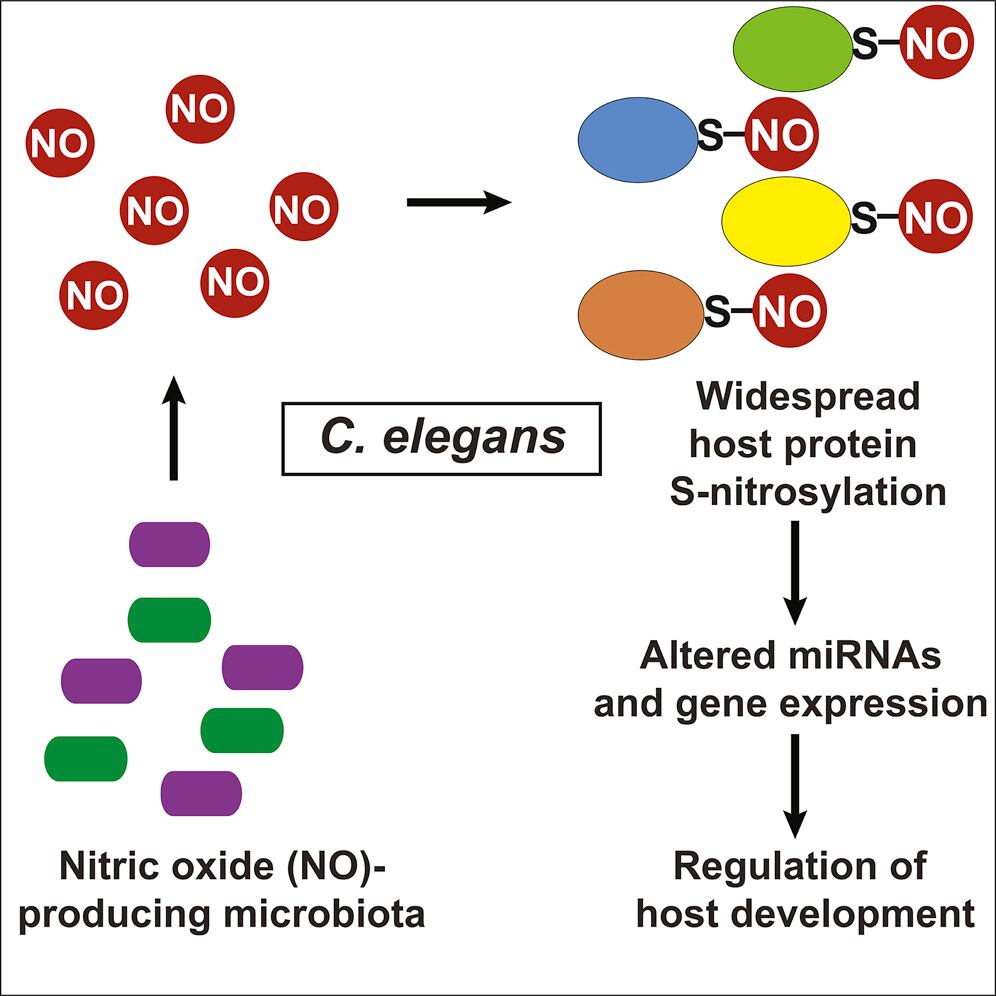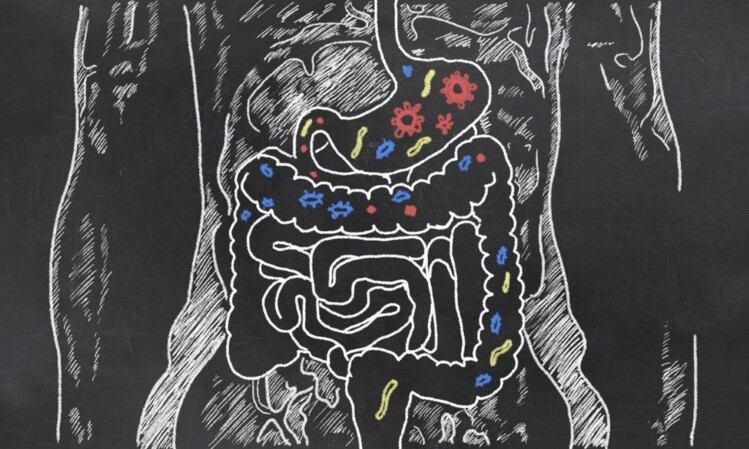The findings, published in Cell, describe something that the researchers term an ‘inter-species communication’ in which bacteria secrete a specific molecule that allows them to communicate with and control their hosts' DNA – and suggests that the conversation between the two may broadly influence human health.
"There is tremendous complexity in the gut, and many researchers are after the next unusual substance produced by a bacterium that might affect human health," commented Jonathan Stamler, MD, of Case Western Reserve University School of Medicine, who led the study.
However, with trillions of bacteria in the average gut, Stamler and his team decided to look for a common language that all bacterial species might use.
"The enormity of the gut bacteria population and its relationship to the host predicts there will be general means to communicate that we humans can recognise,” he said.

By initially using studying the microbiome and DNA of worms known as C. elegans, which is a common mammalian laboratory model, the research team identified nitric oxide is a general mechanism by which gut bacteria can communicate with mammalian hosts.
Nitric oxide attaches to human proteins in a carefully regulated manner, via a process known as S-nitrosylation. Disruptions to this process have been broadly implicated in many diseases states including Alzheimer's, Parkinson's, asthma, diabetes, heart disease, and cancer.
The new study is the first to show that gut bacteria can tap into this nitric oxide network, which is ubiquitous in mammals, including humans.
Previous work to untangle communication lines to and from gut bacteria has primarily focused on rare molecules that bacteria secrete, while the new findings are akin to uncovering a chemical language common across species, as opposed to single words, said Stamler.
Breakthrough study
By tracking the nitric oxide secreted by gut bacteria inside C. elegans, the team were able to identify that the nitric oxide secreted by gut bacteria later attached to thousands of host proteins – which completely changed the worm's ability to regulate its own gene expression.
The team fed developing worms’ bacteria that produce nitric oxide and selected a specific protein – known as argonaute protein, or ALG-1 – that is highly conserved from worms to humans and silences unnecessary genes, including genes critical for development.

They found that when nitric oxide secreted by the bacteria attached to ALG-1, the worms developed malformed reproductive organs and died.
Too much nitric oxide from bacteria commanded the worms' DNA silencing proteins and impaired healthy development, they said.
"Practically, animals will not let this happen," Stamler said.
Rather, the authors suggest that mammalian hosts outside of a laboratory setting will adjust to accommodate changing nitric oxide levels.
"The worm is going to be able to stop eating the bacteria that make the nitric oxide, or it will begin to eat different bacteria that makes less nitric oxide, or change its environment, or countless other adaptations,” he said.
“But by the same token, too much nitric oxide produced by our microbiome may cause disease or developmental problems in the foetus," added Stamler.
Therapeutic potential?
Stamler says he imagines nitric oxide may represent an opportunity to manipulate the symbiotic relationship between the bacteria that make up our microbiome and human health.
Just as some probiotics are suggested to improve digestion and a host of other health outcomes, he suggested that inoculating a person's gut with bacteria to improve nitric oxide signalling is conceivable in the future.
“I now think of this therapeutically, as a drug. There are tremendous opportunities to manipulate nitric oxide to improve human health,” he added.
While nitric oxide and S-nitrosylation may be a general mode of interspecies communication with broad health implications, a good deal of further research will be needed, he said.
“We're basically seeing a new field opening for general strategies of communication," says Stamler. "There will be others."
Source: Cell
Volume 176, Issue 5, Pages 1014-1025, doi: 10.1016/j.cell.2019.01.037
“Regulation of MicroRNA Machinery and Development by Interspecies S-Nitrosylation”
Authors: Puneet Seth, et al

